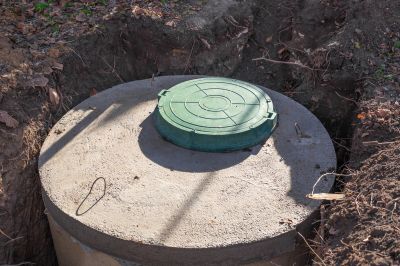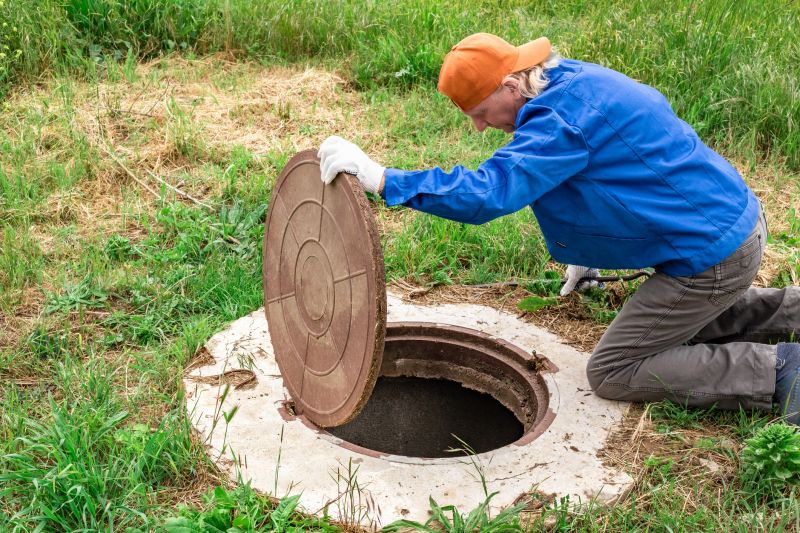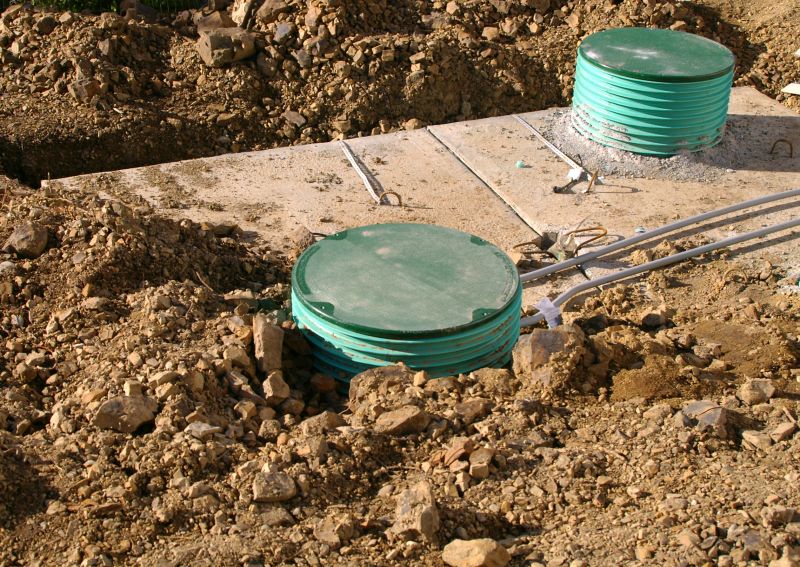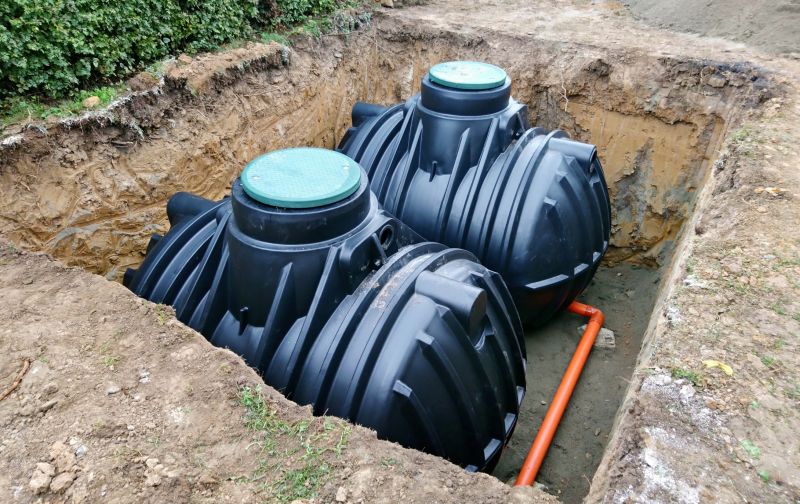Get Septic Tank Replacement in Boulder, CO
Septic tank replacement services help Boulder-area property owners solve issues like tank failure, backups, or leaks by connecting them with local contractors who handle removal and new system installation.
Property owners in Boulder, CO, who are considering septic tank replacement understand the importance of planning ahead for a reliable and efficient waste management system. Whether due to age, damage, or changes in property needs, replacing a septic tank is a significant project that benefits from careful comparison of local service providers. Exploring options now can help ensure the work is handled by experienced contractors familiar with area-specific regulations and soil conditions, providing peace of mind for a long-lasting solution.
If you're evaluating the next steps for your property, discovering local contractors who specialize in septic tank replacements can make a difference. These professionals can assist with assessing your current system, recommending appropriate solutions, and managing the installation process. Continuing to explore your options allows you to make informed decisions and connect with qualified service providers equipped to meet the unique needs of Boulder-area homes and properties.
- Septic Tank Replacement - needed when a septic system shows signs of failure or persistent backups in Boulder neighborhoods.
- Septic Tank Replacement - required after a tank has reached the end of its lifespan or sustained significant damage.
- Septic Tank Replacement - necessary when upgrading an outdated or undersized system to meet current household needs.
- Septic Tank Replacement - essential if a septic tank has developed leaks or contamination issues affecting property safety.
- Septic Tank Replacement - advised when local soil conditions or property changes necessitate an updated septic solution.



Septic tank replacement services involve removing an aging or failing septic system and installing a new tank to ensure proper wastewater management. This process typically includes excavating the existing tank, disconnecting and removing it safely, and then installing a new, appropriately sized unit that meets the property’s needs. Professional contractors also handle the necessary groundwork, such as preparing the site, ensuring proper connections to plumbing and drain fields, and conducting inspections to confirm the system functions correctly once installed. This service is essential for maintaining the health and safety of a property’s wastewater disposal system, especially when repairs or upgrades are no longer sufficient.
Replacing a septic tank helps resolve common problems associated with aging or damaged systems. These issues can include persistent odors, slow drains, backups in toilets or sinks, and standing water or soggy areas around the drain field. Over time, septic tanks can corrode, crack, or become overwhelmed by increased household usage, leading to system failure. A new septic tank can eliminate these problems, restore proper wastewater flow, and prevent more serious issues such as sewage leaks or environmental contamination. Property owners experiencing ongoing septic system troubles should consider professional replacement to restore reliable operation and avoid costly repairs.
Septic tank replacement services are frequently used by homeowners in rural or semi-rural areas, properties with large or expanding households, and those with properties not connected to municipal sewer systems. They are also common for properties where the existing septic system has reached the end of its lifespan or has been compromised by damage or improper maintenance. Commercial properties, small farms, and vacation homes may also require septic replacements if their existing systems are no longer adequate for their wastewater needs. Local contractors who specialize in septic services can assess the property, recommend appropriate tank sizes, and handle all aspects of the replacement process to ensure the system functions effectively for years to come.
When considering septic tank replacement, it’s important for property owners to recognize the signs that indicate a system may need to be replaced. These include frequent backups, persistent foul odors, standing water around the drain field, or sewage surfacing in the yard. If repairs no longer resolve the issues or if the septic tank is approaching the end of its useful life, a replacement can often be the best solution. Consulting with experienced local service providers can help determine whether a replacement is necessary and ensure the work is completed correctly. Properly installed, a new septic tank provides a dependable solution for wastewater management, supporting the health and safety of the property and its inhabitants.
The overview below groups typical Septic Tank Replacement projects into broad ranges so you can see how smaller, mid-sized, and larger jobs often compare in Boulder, CO.
In many markets, a large share of routine jobs stays in the lower and middle ranges, while only a smaller percentage of projects moves into the highest bands when the work is more complex or site conditions are harder than average.
Smaller Repairs - Many routine septic tank repairs, such as fixing leaks or replacing baffles, typically cost between $250 and $600. These projects are common and usually fall within this middle range. Less extensive repairs may be less expensive, while more involved fixes can approach the higher end.
Full Replacement - Replacing an entire septic tank generally ranges from $3,000 to $7,000, depending on tank size and site conditions. Larger, more complex projects, such as installing a new system in difficult terrain, can exceed $8,000. Many local contractors handle standard replacements within this typical range.
Tank Pumping & Maintenance - Routine pumping services usually cost between $200 and $400, with most projects falling into this lower to mid-range band. Regular maintenance helps prevent costly repairs and is often a straightforward service for local pros to provide.
System Upgrades & Additions - Upgrading or expanding an existing septic system can cost from $2,500 to $6,500, depending on the scope and complexity. While many upgrades stay within this range, larger or more complex additions may push costs higher, especially in challenging locations.
Actual totals will depend on details like access to the work area, the scope of the project, and the materials selected, so use these as general starting points rather than exact figures.
Septic System Installation - local contractors who install new septic systems often use similar planning, excavation, and soil assessment skills as septic tank replacement projects.
Drain Field Repair - repairing or replacing drain fields requires expertise in soil testing, site evaluation, and proper system layout, which aligns with septic tank replacement processes.
Underground Utility Installation - installing underground utilities involves excavation, site planning, and working with underground infrastructure, comparable to septic tank setup and replacement tasks.
Stormwater Management System Installation - designing and installing stormwater systems involves site assessment and excavation skills similar to those needed for septic tank replacement.
Water Line Replacement - replacing or installing water lines requires excavation, planning, and careful site management similar to septic tank work.
Foundation Drainage System Installation - installing drainage systems around foundations involves excavation and soil assessment skills comparable to septic tank replacement services.

When evaluating service providers for septic tank replacement in Boulder and nearby areas, it’s important to consider their experience with similar projects. Homeowners should look for local contractors who have a proven track record of handling septic replacements comparable in size and scope to their own property. Asking for examples of past work or references related to septic system upgrades can provide insight into a contractor’s familiarity with local soil conditions, regulations, and common challenges. This experience helps ensure that the chosen professional understands the specific requirements of septic tank replacement in the area, reducing the likelihood of unexpected issues during the project.
Clear written expectations are essential when comparing local service providers. Homeowners should seek detailed descriptions of the scope of work, including the steps involved, materials used, and any preparations needed before the project begins. A transparent outline of what the contractor will deliver helps set realistic expectations and provides a basis for evaluating bids or proposals. It’s also beneficial to clarify the communication process-how updates will be provided, who the main points of contact are, and how questions or concerns will be addressed throughout the project. Well-defined expectations foster a smoother process and help prevent misunderstandings.
Reputable references and strong communication are key indicators of a reliable contractor. Homeowners should inquire about references from previous clients, particularly those who had similar septic tank replacement work completed. Speaking with past customers can reveal insights into the contractor’s professionalism, reliability, and quality of work. Additionally, a contractor’s responsiveness and clarity in communication during initial interactions can signal how effectively they will handle the project from start to finish. While this site introduces homeowners to local options, it’s important to remember that it does not perform the work itself-choosing a trusted, experienced, and communicative service provider is essential for a successful septic replacement.
Property owners in Boulder, CO use Septic Tank Replacement services for practical projects around their homes and businesses. This guide focuses on everyday jobs and straightforward project options.


Septic tank replacement services are often needed when property owners in Boulder, CO notice persistent odors, slow-draining fixtures, or sewage backups. These issues can arise as tanks age or become damaged, especially in areas where the soil and groundwater conditions influence septic system performance. Homeowners may also seek replacement if their current system no longer meets the needs of their property, such as during renovations or when expanding the home. Local contractors can assess the situation and provide options to ensure the septic system functions properly and meets local code requirements.
In addition, property owners might look for septic tank replacement services when planning for new construction or property development in Boulder. A reliable service provider can help determine the best type and size of tank suitable for the property’s usage and site conditions. Regular inspections and timely replacements can prevent costly repairs and environmental concerns, making it important to connect with experienced local service providers who understand the unique needs of properties in the area.
When should a septic tank be replaced instead of repaired? Septic tanks typically need replacement when they are severely damaged, have reached the end of their lifespan, or are experiencing persistent issues that repairs cannot resolve effectively.
What signs indicate a septic tank may need replacement? Signs include persistent odors, slow drainage, sewage backups, or standing water around the tank area, which may suggest the tank is failing and requires replacement.
How do local contractors determine if a septic tank needs to be replaced? Contractors usually perform inspections, including tank pumping, dye tests, or camera inspections, to assess tank condition and determine if replacement is necessary.
What types of septic tanks are available for replacement? There are various options, including traditional concrete, plastic, or fiberglass tanks, with choices depending on property needs and local regulations.
How can homeowners find qualified service providers for septic tank replacement? Homeowners can contact experienced local contractors who specialize in septic systems to compare options and ensure proper installation and service.
Septic Tank Replacement Planning - Property owners can plan for a septic tank replacement when preparing for property renovations or upgrades.
Assessing System Needs - Homeowners might evaluate their current septic system to determine if a replacement is necessary for improved functionality.
Scheduling Maintenance - Individuals can coordinate with service providers to schedule replacement work during off-peak times or convenient periods.
Ensuring Compliance - Property owners can work with local contractors to ensure their septic system meets current regulations and standards.

If you are thinking about Septic Tank Replacement for a property in Boulder, CO, this guide is meant to help you understand the work, the typical project types, and how different options might fit your plans.
When you are ready, you can use the quote form on this page to share a few details about your project. From there, local pros can review the basics and respond with options that match what you have in mind.
